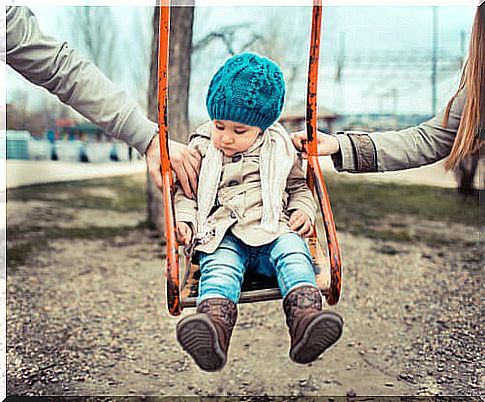Being An Only Child: Ballast Or Privilege?

The issue of the only child has unleashed great controversies, especially in recent times when a good part of the couples in the world no longer want to have a large offspring. While it is true that siblings are a great gift to any human being, it is also true that mothers and fathers currently have many roles and that prevents them from spending a good amount of time with the family.
A while ago, the advantage of having large families was unquestionable. Mothers stayed at home and were the protagonists in raising their children. But in the 21st century things are very different. It is clear that most fathers and mothers have to work and this means that they dedicate only a part, sometimes very small, of their time to parenting.
Now couples are also much less stable and have less support from the extended family. That is why the cases have increased in which if there is more than one child in the family, the oldest ends up raising the youngest, or they all end up being cared for by someone else, who does not always guarantee a good education. And that, in any case, never replaces parents.
The advantages of being an only child
Without a doubt, an only child has great advantages. Although they have a reputation for being selfish and capricious, this doesn’t really have to be the case. If only children are well educated, they may actually be in a prime position to mature and grow up in a healthy way. There are several factors that count in your favor:

- Only children get more attention from their parents. They do not have to divide their time and worries among several children and, therefore, have the possibility of doing their work better. This special attention almost always gives only children greater self-confidence and higher self-esteem.
- They tend to have a faster intellectual development. Since only children are primarily related to adults, especially in their early years, they typically have faster thinking and language development than other children.
- Only children are almost always more orderly and responsible. As they do not live with other children, the safest thing is that they adopt the model of order and work that their parents have. In general, they are children who know how to apply themselves to their duties and seek that their things are always well organized.
- Only children They know how to adapt to loneliness and develop hobbies that require intellectual work. Loneliness is only negative when it means lack of support or understanding. Instead, it has a lot of positive when it allows people to get to know each other better and be more independent. At the same time, it is not uncommon for only children to develop an interest in reading, painting or other types of activities that can be done alone.
The disadvantages of being an only child
Although having only one child allows parents to provide them with more dedication and greater financial security, it is also a situation with some difficulties. Siblings take away attention and lead to rivalry, but they also provide valuable lessons for maturing. Therefore, these are some disadvantages when you do not have siblings:

- The only child is generally more self-centered. It is very difficult for him to understand that everyone has their turn in a game and that not everything they do is going to be celebrated by adults. Sometimes it is difficult for him to adapt to groups, for this reason.
- Sometimes they mature too early. This would not be negative, if it weren’t for the fact that by maturing so quickly, spontaneity also decreases and this leads them to be less cheerful. They have a hard time indulging in “silly things,” and while adults like this, kids may grow up too rigid.
- They have trouble being generous. It seems normal to them that each person fix their own problems and solve their own needs. It is difficult for them to share what they have, both materially and emotionally. They do not “give” to others easily.
- Only children can become reserved, because they cannot share the experiences with their parents at home. They may have a lot of trust in their parents, but this will never replace the complicity and closeness that can be had with siblings. That is why they can become somewhat reserved and distant. They may also be poor at resolving conflicts with others.

It is also decisive that they renounce overprotecting them or exerting excessive control over them. In this way, they will ensure that they can enjoy the advantages of being an only child and reduce the chances that they will become people who are closed in on themselves and in their own interests, without really taking others into account.









